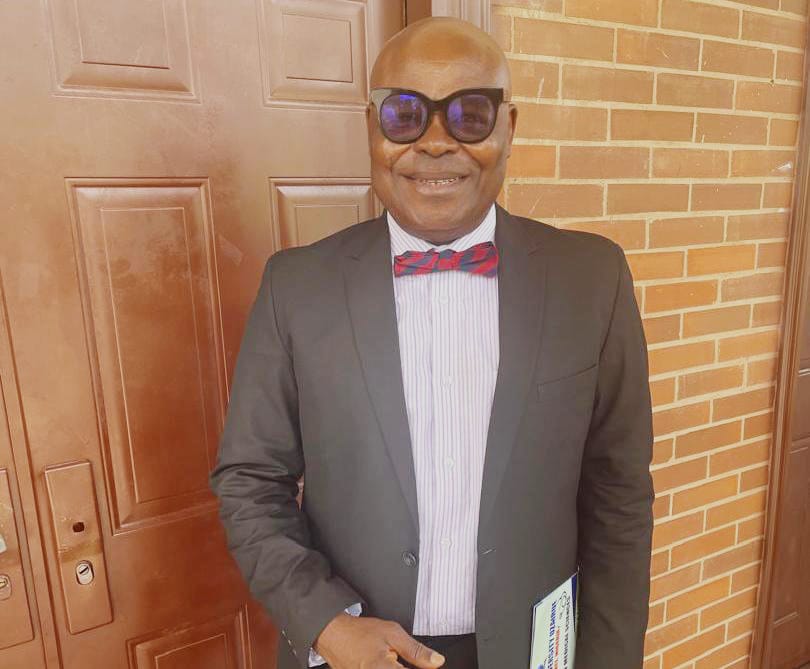– The Implications Of The Establishment Of The Futa Teaching Hospital, Akure
By Prof. Olusegun Ojo
Health is wealth, so goes the age-old aphorism. The diversity and burden of illnesses and medical emergencies naturally reflect the density and activity of any human population. Consequently, healthcare provision—in terms of infrastructure and personnel—must evolve proportionally with population growth. Easy access to quality healthcare is therefore essential to preventing unnecessary loss of lives and productive man-hours, ensuring a level of wellness that supports optimal economic performance and prosperity within any community.
Historically, the distribution of tertiary teaching hospitals in Nigeria mirrored the locations of the nation’s federal universities. In the western region, for example, we have the Lagos University Teaching Hospital (LUTH), the University College Hospital (UCH) in Ibadan, the Obafemi Awolowo University Teaching Hospital (OAUTHC) in Ile-Ife, and the University of Ilorin Teaching Hospital (UITH). Similar patterns existed across other geopolitical zones.
To bridge the gap between these institutions and underserved populations, the Federal Government subsequently established Federal Medical Centres (FMCs) across the country. States that already hosted Federal Teaching Hospitals were doubly blessed—benefiting from an additional tertiary health institution. However, since its creation in 1976, Ondo State has had only one federally funded tertiary health facility—the Federal Medical Centre, Owo.
The Case for Akure
The FMC in Owo remains the sole federal tertiary health institution in Ondo State. While its location may have been strategic in the context of the old Ondo State, it is geographically disadvantageous to the present-day Ondo State, whose population is now heavily concentrated in Akure. As the capital city, Akure is home to the state’s largest population cluster and economic activity. Given the poor state of road networks, it is suboptimal to have the highest level of federal healthcare service located far from the state’s main population hub.
Recognizing this gap, several state governments across Nigeria have established teaching hospitals in their capital cities to meet growing health demands. States such as Lagos, Ogun, Oyo, Ekiti, Kano, Niger, Benue, Bauchi, Ebonyi, Anambra, Abia, Rivers, Delta, Edo, Bayelsa, and Enugu have all developed, or are in advanced stages of developing, tertiary teaching hospitals—mostly situated within their capital cities. Sadly, Ondo State lags behind in this regard, with its own teaching hospital located in Ondo town, rather than the state capital, Akure.
Akure: Demography and Healthcare Needs
Akure, the administrative headquarters of Ondo State, lies approximately 7°25′ north of the Equator and 5°19′ east of the Meridian. It is about 700 km southwest of Abuja and 311 km northeast of Lagos. The metropolis, which spans Akure South and Akure North Local Government Areas, has evolved into a densely populated urban centre. Residential districts such as Arakale, Aiyedun, Ijoka, and Oja-Oba accommodate more than 200 persons per hectare, while estates like Ijapo and Alagbaka average between 60–100 persons per hectare.
Primarily an agrarian population, Akure and its surrounding communities have witnessed tremendous growth since the town became the state capital in 1976. Yet, healthcare infrastructure has not expanded proportionally. The Akure State Specialist Hospital, established during colonial times to serve a much smaller population, remains the city’s main public tertiary facility—its infrastructure only marginally improved since 1953 despite a population that has grown tenfold.
A Bold Step Forward
In view of these realities, the decision by the administration of His Excellency, Hon. Lucky Orimisan Aiyedatiwa, to cede the Akure Specialist Hospital to the Federal Government for upgrade into a Federal University of Technology Akure (FUTA) Teaching Hospital is both visionary and transformative. This initiative will not only upgrade existing facilities but also pave the way for a brand-new, world-class teaching hospital befitting the people of Ondo State.
Implications of the Transition
Transforming the hospital into a federal tertiary institution entails comprehensive structural and organizational reforms. These changes are fundamental to establishing a modern, academic medical centre driven by efficiency, professionalism, accountability, and innovation.
The upgrade will open unprecedented access to federal funding and development partnerships, enabling the most extensive infrastructure renewal in the hospital’s history. Expected developments include:
New outpatient and inpatient facilities
A modern emergency department
Advanced pathology and diagnostic laboratories
Modular operating theatres
A cutting-edge radiology complex with CT, MRI, and digital X-ray units
Intensive care and neonatal units
Digital patient monitoring and medical records systems
Moreover, the hospital’s equipment base will expand to include echocardiography, endoscopy, and other advanced diagnostic tools, aligning service delivery with both national and international standards.
Human Capacity Development
Equally important, the FUTA Teaching Hospital will prioritize staff development through structured training, specialization, and professional certification programs. Opportunities will abound for local and international fellowships, research grants, and continuous professional development. Partnerships with recognized professional bodies—including the West African and Nigerian Postgraduate Medical Colleges, the Nigerian Medical Association, and the Nursing and Midwifery Council—will strengthen capacity and ensure excellence in service delivery.
Research, Innovation, and Community Impact
As a federal teaching hospital, FUTA’s medical centre will become a leader in clinical research and a referral hub for tropical diseases, maternal and child health, non-communicable diseases (such as cancer, diabetes, and hypertension), mental health, and emerging infections. Research centres and ethics committees will foster international collaborations and clinical trials, while partnerships with global universities will enhance innovation in treatment, diagnostics, and public health policy.
Furthermore, the hospital will actively pursue community health outreach through mobile clinics, school health programs, and public enlightenment campaigns—fulfilling its Corporate Social Responsibility to underserved populations.
In conclusion, the establishment of the FUTA Teaching Hospital, Akure, represents a major leap forward for Ondo State’s healthcare landscape. It is not merely an infrastructural upgrade—it is a socioeconomic catalyst that promises better health outcomes, improved manpower development, increased federal presence, and overall prosperity for the people of Ondo State.
Prof. Olusegun Ojo is the Chief Medical Director, FUTA Teaching Hospital, Akure.

